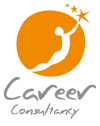Think you’re too astute to make any of these errors? Maybe, maybe not.
Technical blunders, lack of thought, unhelpful mindsets – any one of these can derail your career prospects. Skim the following list and do a quick audit. Then, either heave a sigh of relief that you’ve nailed these issues or get started on your workaround.

1. NEVER tell the whole truth in a job interview.
I know that sounds a bit immoral but bear with me, there is both logic and an ethical approach to back this up.
Interviews are about the marketing truth not the whole truth. The employer should be conducting a skilled hiring process to ascertain whether you are the right person for the job – classic Buyer Beware territory for them. It’s not your responsibility to bare your soul and reveal your deep darkest secrets.
Of course, this does not mean that you lie. Let’s look at an example…
I often say I’m one of the few people in the world who admits she’s not a team player. Imagine that an interviewer asks me a teamwork question and I answer with the whole truth:
Them: ‘Can you give us an example of a time when you worked well in a team?’
Me: ‘I’m not really a team player and prefer to forge my own pathway in life.’
If I said that, would I get the job? No way!
Now, of course, even though I’d rather not, I can work very well in a team and so could easily give a compelling and truthful answer to that question. After the interview, I would go home and think about it. If the job entailed a little bit of teamwork, I’d probably say yes. If it meant working closely all day every day with a group of people, I would turn down the job.
Note the difference. I would be the one making the decision, not the employer.

2. NEVER confuse ‘different’ with ‘better’
A client, ‘Marco’ told me he was after a promotion to senior manager. So, we nutted out a strategy, part of which was to analyse whether his current persona was setting him up for this move. I noticed that Marco had the all-too-common habit of saying ‘like’ every four or so words, as in…
‘I, like, went to the bank and, like, borrowed some money’.
Marco was mortified and determined to do something about it. Next session, he reported…
‘I worked all week on being better.’
His analysis of the changed behaviour was wrong.
A lot of career advice is, rightly, very superficial. Our job is to notice anything that may get in the way of your job success and then be brave enough to talk to you about it.
You’re not a lesser person if you slump in a chair during an interview or perhaps fail to make good eye contact.
Don’t sweat this small stuff. I describe them as minor technical errors. They’re relatively easy to fix so by all means see a career expert to get an assessment, but they are not the important things in life.
Once you rectify these matters you may be a different (and I’d argue) more skilled person, but you are not better.

3. NEVER give up hope that you can find a job you love.
My young nephew has mentioned that most of his friends are unhappy at work. Another client told me that she had jumped from one job to another for years, never really knowing why and never feeling comfortable that she was making the right career moves.
How horrible! And how unnecessary.
The starting point to career happiness is to understand what your Ideal World looks like.
Next, you need to incorporate the cold hard reality of your current life. (If you want to send your kids to a private school, for example, you probably have more rigid salary requirements.)
The sweet spot is where you narrow the gap between the Ideal World and reality so that it’s barely noticeable.
Once you’ve analysed both worlds, you can plot your moves. If you do it properly, either your very next job or, at worst, the one after that lands you where you want to be and where you’ll be happy.
My above client cried literal tears of joy when her self analysis confirmed that, at last, her current job ideally suited her career values, her skills and interests and her hard-wired personality preferences.
On behalf of career specialists, I’d plead as per the Peter Gabriel / Kate Bush song, ‘Don’t give up! You still have us.’

4. NEVER think you owe a prospective employer anything more than politeness.
Many clients I work with tie themselves up in knots about how to behave with prospective employers.
How does this play out?
My clients usually have a few job prospects on the go at the one time and feel really bad about turning the tables on the employer. They worry if they…
- Ask to reschedule a meeting
- Delay making a decision about accepting the offer
- Turn the job down after an extensive series of interactions with the employer
- Change their mind about accepting the job.
I can generally stop them in their tracks by asking them whether the employer ever feels obliged to offer the job to all people who apply (clearly not). Note that I’m not saying it’s necessarily a wise thing to reschedule a meeting / delay a response to a job offer. What I am saying is that it is perfectly acceptable from a politeness point of view.
By the way, the more power you have in the market place, the more likely it is that the employer will make accommodations for you. So, rather than worrying about your supposed obligations, it’s more useful to focus on improving your attractiveness to your market place.

5. NEVER think your job search is over when you accept a job offer.
What happens if it becomes clear that you might not survive the probation period?
In Australia, many jobs come with a six month probation period. You can be asked to leave at any time during that period (with all the normal legislative restrictions, of course). And, most employers will not hesitate to take advantage of that freedom. Imagine how you would feel if you had to start all over again with your job search. No salary to cover the gap, a huge dent to your confidence, worry about how to explain away the circumstances – there’s nothing pleasant about that situation.
What happens if you don’t like them?
The first three months in any new job are tumultuous and often nerve-racking. You don’t know how to use the photocopier. You don’t know if that person who just looked sideways at you does that to everyone or whether you’ve done something wrong. There’s much excitement but lots of worry also.
The subsequent few months is generally when you come to an understanding about whether the job and the organisation are the right fit for you. If they aren’t, you need to have an exit plan.
Most employees feel bad about leaving a job within 12 months. Imagine how harder it would be to leave if you had to start your job search all over again from scratch. The danger is that you wouldn’t have the intellectual and emotional energy, let alone the confidence to go. Instead, you would just stay and not be happy.
Here’s where a huge level of discipline comes in. For the entire first three months in your new job, keep your eye on the market. Continue or start a proper networking campaign. You don’t have to make promises to anyone but you do need to be out and about. Your marketplace needs to know that you exist and needs to think favourably of you.
Even better, implement this marketing strategy throughout your career. That way, as long as you are a quality employee, you will receive regular approaches from keen suitors and know that you have TRUE job security.
2020 vision anyone?
You may have ‘passed’ all five of these career items but there is more to career success than can be covered in a short blog. No matter how smart you are at work and in life, start off 2023 with a career check-up. Access international experts for world’s best practice and/or go local for cultural variations. But go!
Like what you’ve read? Subscribe to our newsletter by clicking here. You’ll be the first to hear about our updates once a fortnight!


